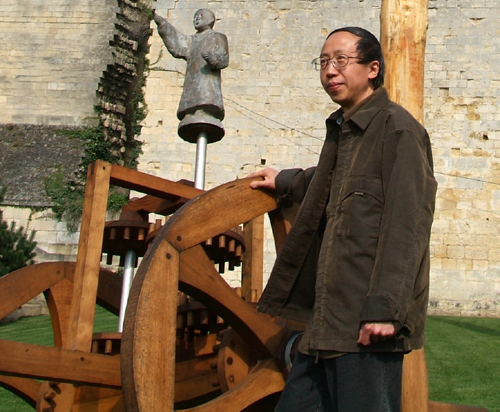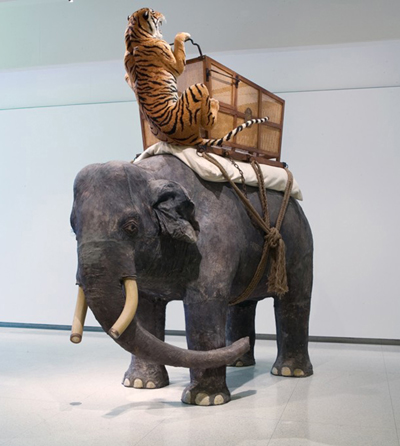One of the most distinguished contemporary artists to emerge from China in the past two decades, Huang Yong Ping is well known for his large installations and sculptures. For The Curve Huang Yong Ping is creating a new installation that explores the complex imperial history between Britain and China in the 19th Century, in particular the Opium Wars. Frolic, the exhibition title, is taken from the name of a ship built in 1844 specifically for the opium trade in China. Frolic is Huang Yong Ping's first solo exhibition to be held in the UK.

"I consider the opium trade as a forerunner for today's globalization: melting trade and the expansion of power. Sublimating the mind, while the body declines. Unveiling the violence and hiding the frolic."
Huang Yong Ping, 2008
Huang Yong Ping's provocative works creates a dialogue between conceptual western art and traditional eastern philosophies. He explores ideas of national and cultural identity, migration, colonialism and historical events. For this dramatic project Huang Yong Ping fills the gallery with sculptures of enlarged paraphernalia associated with opium dens which were widespread in the 19th Century.
The installation evokes the intemperance of the opium den whilst exposing the cruder, factory production of the drug with piles of opium balls, scales and storage boxes. The central area of the gallery is occupied with a statue of Lord Palmerston, who served twice as British Prime Minister and is widely considered as the initiator of the Opium Wars in China in 1839 and 1856. The statue, toppled on an opium bed, depicts Palmerston smoking an exaggeratedly large opium pipe.
Importing opium from British India to China was a lucrative trade for Britain in the 19th Century. The Chinese government attempted to control the supply of opium as overuse of the drug was becoming rife. Despite the Chinese government's efforts to enforce its drug laws, Britain continued to smuggle opium to China's ever increasing population of habitual users. The conflict between the two governments erupted in war, commonly known as the Opium Wars (1839 to 1842 and 1856 to 1860 respectively). China's defeat in both wars forced the government to tolerate the opium trade. Britain coerced the Chinese government into signing Unequal Treaties, opening several ports to foreign trade and yielding Hong Kong to Britain.

Nightmare of George V
During the 1980s Huang Yong Ping emerged as one of the founding figures of Xiamen Dada, one of China's most radical avant-garde collectives. The group Xiamen Dada were conceptual artists heavily influenced by the work of Joseph Beuys, John Cage and Marcel Duchamp.